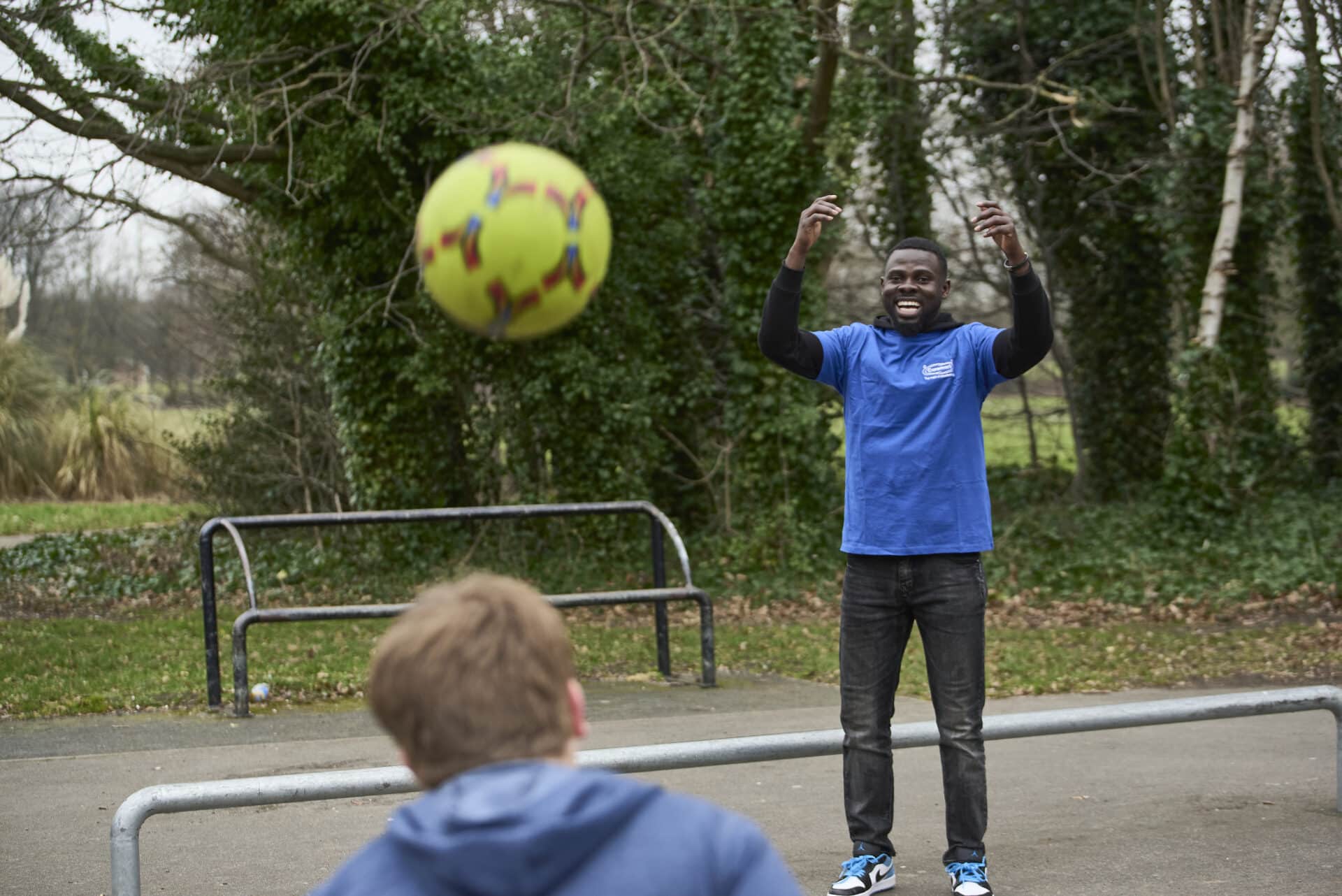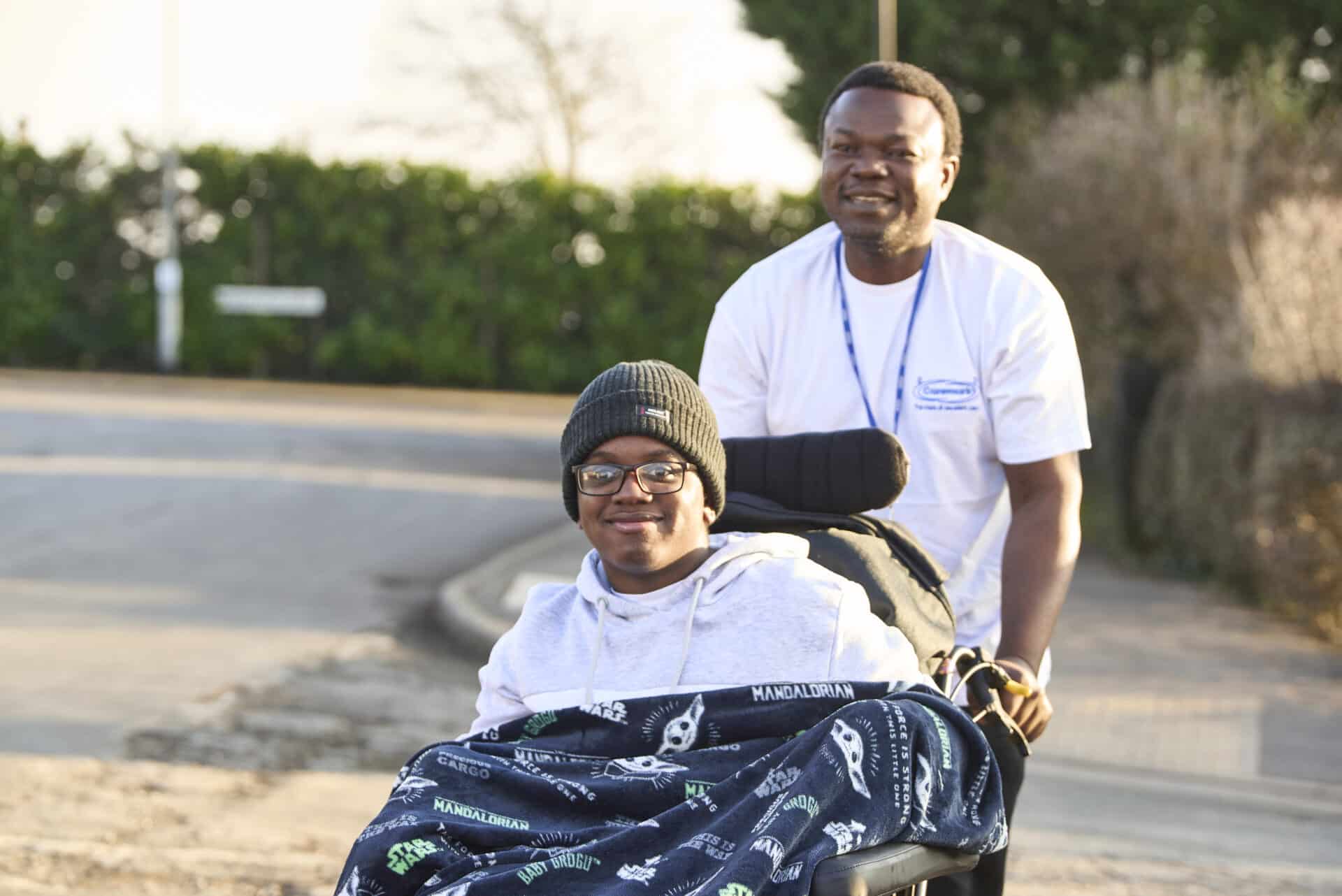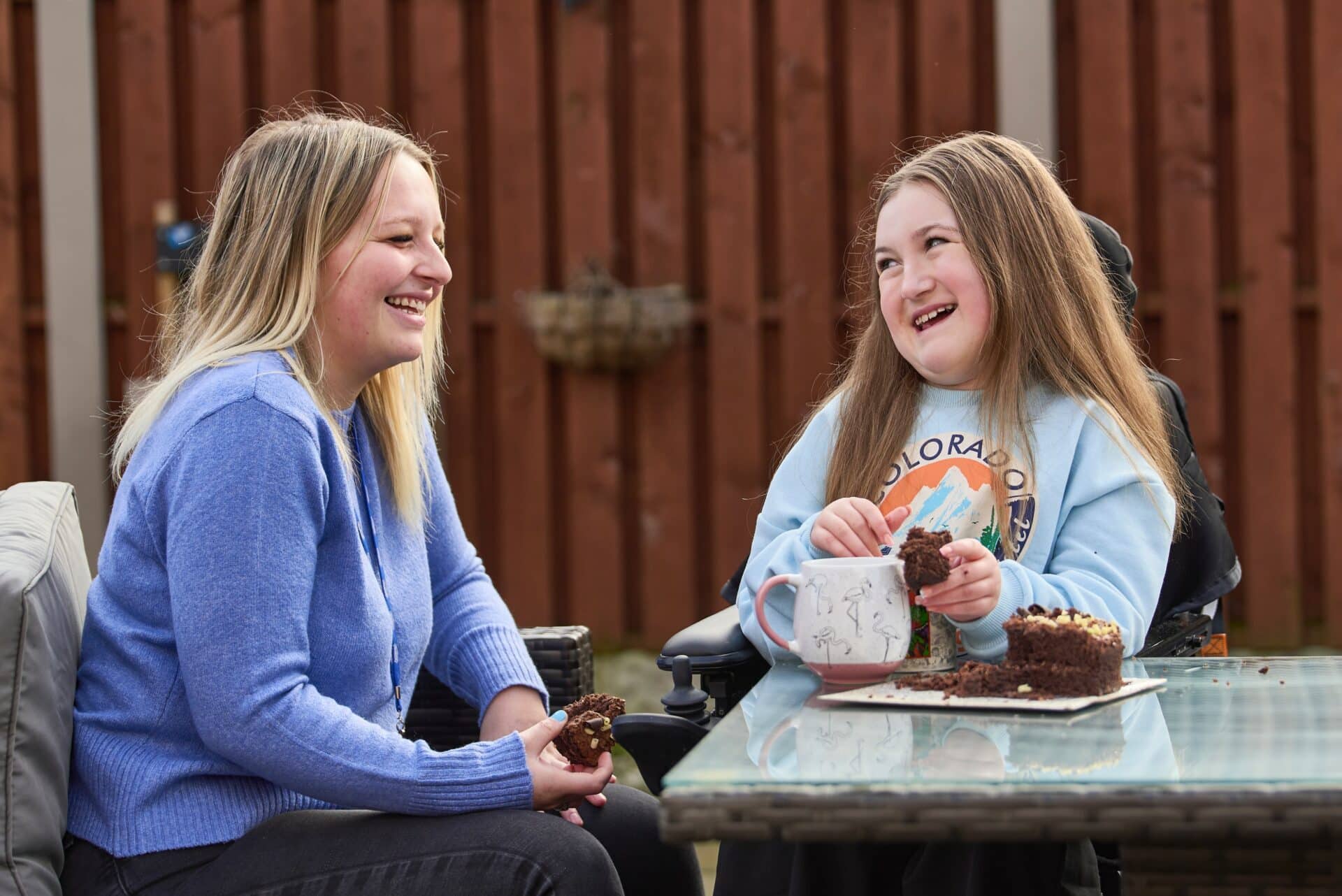Children’s Care
As a parent, you understand that every child is different. We work with you, and with other health professionals involved in your child’s care, to ensure that the care we provide meets the needs of your child, however complex and specialised those needs may be. We appreciate how important it is to you that your child is cared for in an environment with trust, reliability and empathy at its heart.
All our child sector care assistants complete specialist training that prepares them to care for children with such conditions as: ADHD, autism, learning disabilities, behaviours that challenge, hypermobility, gastro-oesophageal reflux disease, congenital myotonic dystrophy and global development delay

Children and Learning Disabilities
Learning disabilities in children cover a broad range of neurodevelopmental issues that can profoundly affect the ability to acquire fundamental skills such as reading, writing, and arithmetic. These difficulties typically emerge as children start school and are due to variations in brain development and function.
Specific learning disabilities like dyslexia, dyscalculia, and dysgraphia each affect different aspects of learning. Dyslexia impacts reading and language processing, dyscalculia is associated with challenges in understanding numbers, and dysgraphia affects writing and other motor skills.
In the UK, addressing these learning disabilities begins with a thorough assessment by education professionals. This can lead to the development of an Education, Health and Care (EHC) plan, tailored to support the child’s specific educational needs. Many children with special educational needs (SEN) are integrated into mainstream schools. This inclusive educational approach is important for their academic progress and social integration.
Support for these children doesn’t stop at the school gates. Therapies, such as speech and language therapy, and at times medication, are employed to manage and mitigate symptoms. Additionally, support groups play a critical role, offering a community where parents and children can exchange insights and strategies.
It’s essential to understand and actively support children with learning disabilities to ensure they can reach their full potential and lead rewarding lives. This holistic approach to education and care forms the backbone of empowering these young individuals to succeed.
Children and Autism
Autism Spectrum Disorder (ASD) in children not only brings considerable challenges but also provides a profound understanding of each child’s unique personality traits. This disorder influences how a child interacts socially, communicates, and behaves, exhibiting unique manifestations in each individual, though there are some common signs that can be identified early on.
Children as young as 12 to 18 months may start showing signs of ASD such as not responding when called by name, avoiding eye contact, or failing to follow pointing gestures. As they develop, these children might not engage in pretend play as much as other children do, which is often an early red flag signaling the need for professional evaluation.
Gender differences in autism are also notable. Boys tend to be diagnosed more frequently, potentially due to more overt symptoms, whereas girls may hide their symptoms by imitating the social behaviours of their peers, which can make autism less apparent in them.
Navigating the path of supporting a child with autism is an ongoing educational journey. Each child’s distinctive qualities are a chance to celebrate who they are while providing them with the necessary support. Early recognition and professional intervention are key, leading to personalised strategies that significantly improve outcomes, helping each child flourish in their own exceptional way.


Children’s Personalised Care
Every child is unique, and recognising this is the cornerstone of developing effective care plans for children receiving support. These plans are meticulously tailored to meet the individual needs of each child, ensuring that his or her specific circumstances, strengths, and preferences are addressed. The process begins with a comprehensive assessment that includes not only the child but also their family, making it a collaborative effort to define the support needed.
In this person-centred approach, the child’s own goals and aspirations are integral to the planning process. This method not only respects children as individuals but also actively involves them and their families in the decision-making process, thereby fostering a sense of ownership and control over their care. The care plan outlines how support will be provided, ensuring it aligns with what children and their families consider most important for their well-being and development.
Moreover, these care plans are dynamic; they are regularly reviewed and adapted to ensure they continue to meet the evolving needs of the child. This adaptive approach helps in providing ongoing support that can adjust to the child’s growth and changing circumstances, always focusing on enabling the child to achieve their potential while supporting his or her independence and integration into community life.
FAQs
Caremark’s Children’s Home Care in Thanet stands out with our tailor-made approach to care. We appreciate the uniqueness of every child and understand that they each require different types of care. We become a part of the child’s support system, working in tandem with families to offer care that fosters independence, enriches their lives, and contributes positively to their growth and development.
Certainly. Our Caremark Thanet team is not only trained but also experienced in managing complex care needs for children. We offer all-rounded support that transcends basic care, incorporating aspects such as mobility assistance, academic help, and facilitating participation in meaningful and engaging recreational activities.
At Caremark Thanet, our top priority is providing a safe environment for all children under our care. We adhere to strict protocols and procedures to maintain safety at all times. Our carers receive continuous training and are equipped with the necessary skills and knowledge to ensure your child’s safety and wellbeing at all times, while also catering to their unique needs and preferences.
Why choose Caremark?
You’ll be in safe hands – our services care for over 14,000 customers.
Personalised care
We provide care that is an individual as you are. You are unique, so your care plan must be too!
Excellent standards
Our quality of care is exemplary. You are extremely important to us, and we care for you like you were our own family.
Cheery visits
We employ our staff based on their personalities – caring, compassionate, cheery and fun!
Allocated Care Assistant
We spend time matching our Care Assistants with our customers and maintaining that pairing.
Family contact
We are open and transparent with family members and share details of each visit when requested.
Confidentiality
Customer confidentiality is extremely important to us. We are fully compliant with GDPR and data protection.